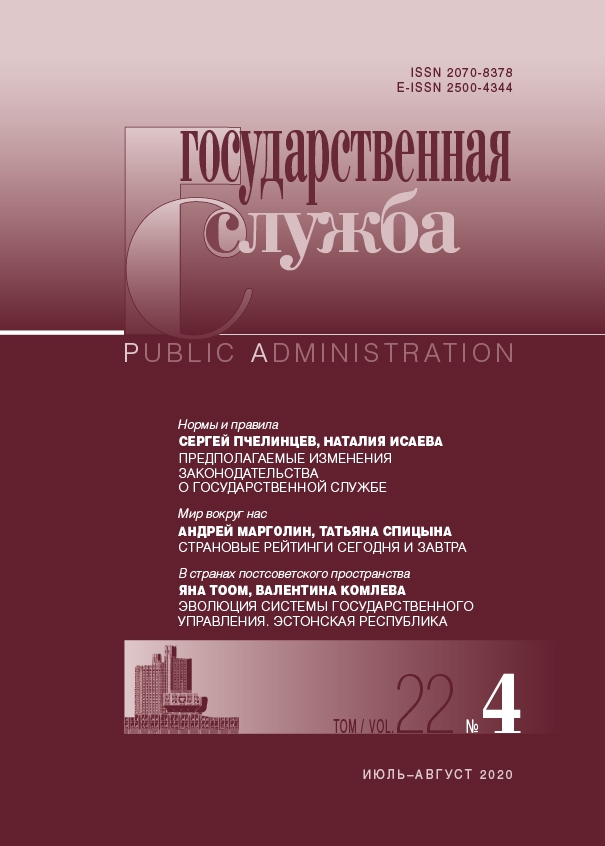Recommended link to article:
MARIA ALEXANDROVNA LIPCHANSKAYAа
аSaratov State Law Academy
DOI: 10.22394/2070-8378-2020-22-4-37-41
Abstract:
The article examines the meaning of digital rights in the constitutional and legal aspects. The author criticizes the concept of digital rights as new objects of civil rights in domestic civil legislation since it contradicts the established world practice in understanding such a term as “digital rights”, as well erroneously ascribes certain powers of other subjective rights as independent ones, which can be realized through digital technologies. The article considers the incorrect assignment to digital rights of some constitutional rights, enshrined in the Russian constitution (rights to information, the right to privacy, freedom of the media). According to the author, digital rights in the constitutional and legal framework should be considered only those that either appeared along with the emergence of modern digital technologies, or acquired a significantly new meaning. The article gives some examples of such rights (the right to Internet access; the right to communication; the right to protection from machine processing of information) and states the conclusion on the formation of a constitutional and legal institution of digital rights at the present time.
Keywords:
constitutional rights, digital rights, objects of civil rights, blockchain technology, the right to information, the right to access the Internet, the right to communication, protection of the rights of citizens
Received:
June 16, 2020
References:
Amelin R. V. Legal regime of state information systems: monograph. M., 2016. GrossMedia. 338 p. In Russian
Amelin R. V., Channov S. E. Transformation of law under the influence of digital technologies: new requirements to training of lawyers. In: Izvestiya Saratovskogo universiteta. Novaya seriya. Seriya: Ekonomika. Upravleniye. Pravo. 2019. No. 2. P. 200-204. In Russian
Andreev V. K. On the concept of digital rights and their negotiability. In: Zhurnal predprinimatelskogo i korporativnogo prava. 2018. No. 2. P. 38-41. In Russian
Anichkin E. S. Modernization of the constitutional and legal status of an individual in the conditions of digital space formation. In: Konstitutsionnoye i munitsipalnoye pravo. 2019. No. 12. P. 19-22. In Russian
Bartsits I. N. Information law in the information society (Concerning the book under edition of Bachilo I. L. and Lapina M. A.). In: Gosudarstvo i pravo. 2017. No. 1. P. 119-122. In Russian
Channov S. E. Legal issues of personal data processing in state information systems. In: Informatsionnoye pravo. 2018. No. 2. P. 10-13. In Russian
Commentary to the Constitution of the Russian Federation (Article by Article). Ed. by Zorkin V. D. Second edition, Revised. M.: Norma, Infra-M, 2011. P. 1008. In Russian
Dobrobaba M. B., Channov S. E. Digital law: problems of understanding in subjective and objective sense. In: Informatsionnoye pravo. 2020. No. 2. P. 4-8. In Russian
Dobrobaba M. B., Channov S. E. The use of state information systems in financial management. In: Pravovaya kultura. 2019. No. 3. In Russian
Gaynulina L. F., Leontyeva L. S. The right to communication: the due and the existing. In: Aktualnyye problemy ekonomiki i prava. 2013. No. 4. P. 217-225. In Russian
Golovkin R. B., Amosova O. S. “Digital rights” and “digital law”. In: Vestnik Vladimirskogo yuridicheskogo instituta. 2019. No. 2. P. 163-166. In Russian
Khabrieva T. Ya. Law facing the challenges of digital reality. In: Zhurnal rossiyskogo prava. 2018. No. 9. P. 5-16. In Russian
Konobeevskaya I. M. Digital rights as a new object of civil rights. In: Izvestiya Saratovskogo universiteta. Novaya seriya. Seriya: Ekonomika. Upravleniye. Pravo. 2019. Vol. 19. No. 3. P. 330-334. In Russian
Kutovoy D. A. Digital analogy of social relations in a post-industrial society: development potential or a new threat? In: Informatsionnoye pravo. 2017. No. 4. P. 34-38. In Russian
Maslovskaya T. S. Digital environment and constitutional law: Interaction areas. In: Konstitutsionnoye i munitsipalnoye pravo. 2019. No. 9. P. 18-22. In Russian
Mayer-Schönberger V., Cukier K. Big data. A revolution that will transform how we live, work and think. Translated from English by Inna Gaydyuk. M.: Mann, Ivanov and Ferber, 2014. P. 240. In Russian
Nevinsky V. V. Human “digital rights”: essence, system, meaning. In: Konstitutsionnoye i munitsipal’noye pravo. 2019. No. 10. P. 26-32. In Russian
Sannikova L. V., Kharitonova Yu. S. Legal essence of new digital assets. In: Zakon. 2018. No. 9. P. 86-95. In Russian
Tikhonova S. V. Legal policy in the digital world: the ideas, methodology, doctrine: monograph. Saratov: Saratov National Research State University named after N.G. Chernyshevsky, 2015. 276 p. In Russian
Zaitsev O. V. The role of notaries in the digital economy through the principles of functioning of distributed registers. In: Notarialnyy vestnik. 2019. No. 10.P. 5-9. In Russian
Articles in Open Access mode are published under the Creative Commons Attribution 4.0 International (CC BY) license.

